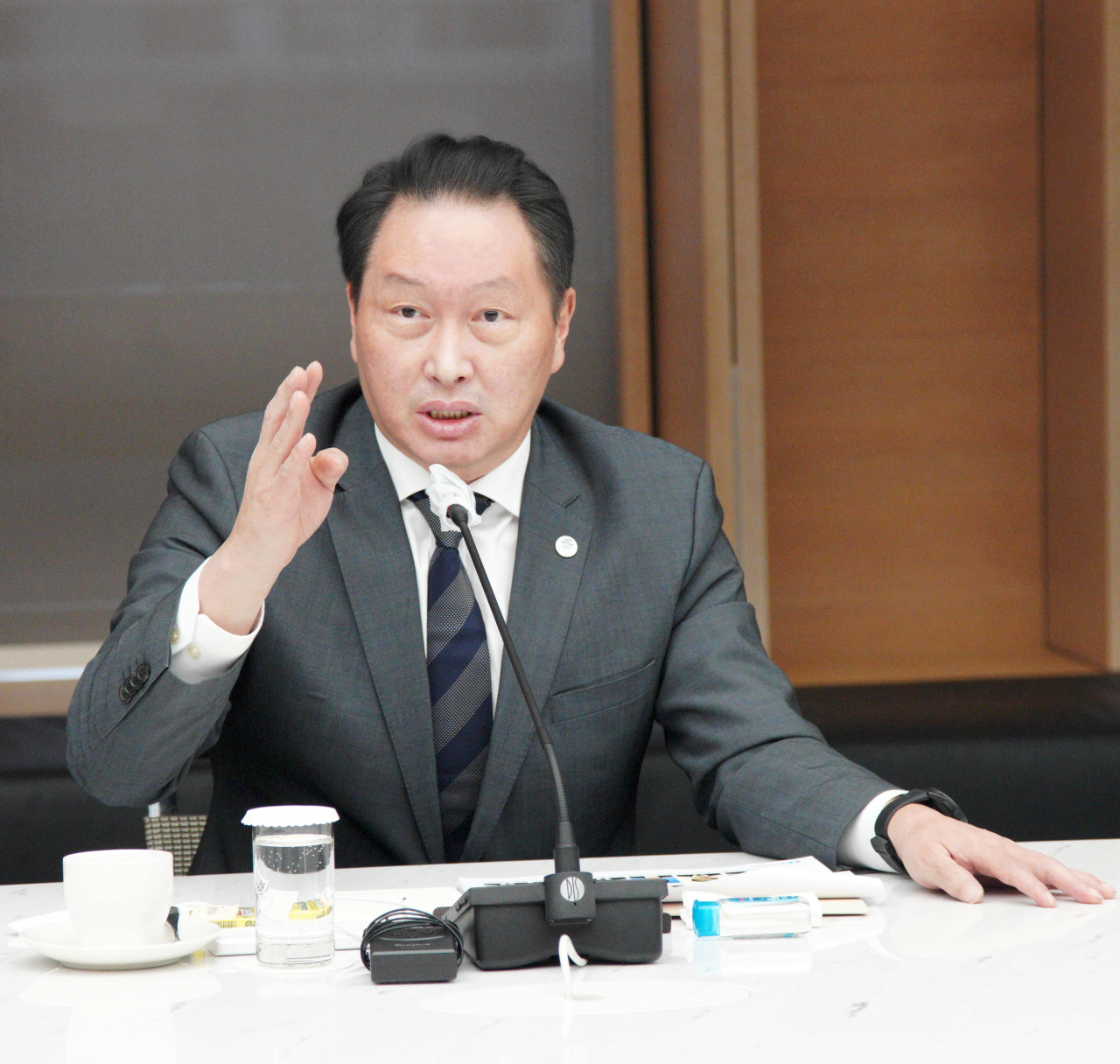SK Group chairman: Chip market's downturn will continue, but not for long
By Park Han-naPublished : Dec. 22, 2022 - 18:00

SK Group Chairman Chey Tae-won painted a gloomy outlook for the semiconductors industry, but predicted the downturn will not last long, as chip cycles have tended to grow shorter.
“In the long run, semiconductors have always gone up and down, and recently, semiconductor cycles have become very short. In the old days, it took three years, but these days it seems to be shortened to one year,” said Chey, who also serves as the chairman of the Korea Chamber of Commerce and Industry, during a meeting with reporters at the business lobby group’s headquarters in Seoul on Wednesday.
During the pandemic, the chip industry enjoyed brisk sales as people purchased or updated PCs and laptops for remote work. Now, it is seeing demand slide.
“It is true that the semiconductor industry as a whole will face a hard time, but I don't think it will last that long,” he said. The conglomerate’s flagship SK hynix is the world's second-largest memory chipmaker after Samsung Electronics and the world's third-largest semiconductor company.
In the shifting landscape of global trade, corporations and the country should aggressively find new markets they have not been paying attention to, the chairman said.
“Markets change dramatically as the global market, which used to be one, splits and protectionism gets stronger,” he said.
For Korea, the world's most export-dependent industrialized nations, with exports of goods and services valued at 36 percent of gross domestic product, he said customized responses to the disruption of the global supply chain and other market changes are crucial.
Building trust with countries that Korean companies have not already established relationships with has became more important than ever. Churning out products at cheaper prices than competitors will not be enough for firms to keep business going in the new global trade environment, he said.
He also said it is necessary to restore and improve relations with Japan at a time when the US-China conflict is intensifying.
“The security alliance with the United States is also important, and we are in a dilemma where we cannot neglect and exclude China, our No. 1 economic partner,” he said.
“When (the US and China) dispute deepens like now, neighboring countries need to unite more."
Meanwhile, the chairman requested the government create investment funds to nurture strategic industries while attending a meeting with President Yoon Suk-yeol, Prime Minister Han Duck-soo, ministers and other business lobby group leaders at the former presidential office Cheong Wa Dae on Wednesday.
“It’s not that companies don’t make investments. They don’t have enough cash flow to do so,” he said.
"The reason the futuristic industry is not developing is because the market is yet to be visible, and that is why investment is not coming in."
To encourage eco-friendly business and carbon-zero drives, Chey stressed the importance of creating business opportunities and forming a market out of global trends.
“We need a solution that does not cost more, but marketize it,” he said. “If we deem the demographic crisis, climate crisis, economic security and balanced regional development as opportunities rather than crises, and thinking about how to market them, investment will be activated.”



















![[Today’s K-pop] BTS pop-up event to come to Seoul](http://res.heraldm.com/phpwas/restmb_idxmake.php?idx=642&simg=/content/image/2024/04/17/20240417050734_0.jpg&u=)